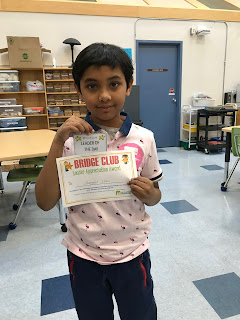Hello Ranchlands School Community!
 Helping Your ELL Child at Home
Many parents have requested ways in which they can support their ELL child at home. Here are some helpful tips:
Helping Your ELL Child at Home
Many parents have requested ways in which they can support their ELL child at home. Here are some helpful tips:
Understand the Importance of English
Parents must first understand and believe in the importance of English language skills. Children pick up on parental attitudes. If children realize the adults in their lives believe that learning English is important, they will be more likely to approach the subject with a positive attitude.
Prepare Children for School
Parents can help their children learn English by making sure they are well prepared for school in general. This can include:
• Setting aside a time and place for homework
• Having resources available such as pens, paper, and dictionaries
• Being willing to answer questions about homework when possible
• Asking about their school day and listening to concerns
• Ensuring they eat a healthy breakfast before school
• Encouraging them to get a good night's sleep
Communicate with Teachers
Talking to teachers and other school personnel can be intimidating for some parents of ELL students, especially if they are not comfortable with their own English skills. However, teachers are the connection between parents and the school. Teachers are invaluable partners in helping children reach their potential. In addition to reporting on a student's overall progress, teachers may be able to suggest the best methods for practicing English at home and point parents to helpful resources. Interpreters are available for parents who are unable to speak to a teacher in English.
Model Learning
One of the greatest ways for parents to help their children learn English is by trying to learn English themselves. When parents are able to use English at home, more opportunities will arise for children to practice speaking and listening.
Read Regularly
Reading is an invaluable skill that only improves with practice. Parents can help by providing access to books and reading aloud to their children. While it is important to practice reading in the target language, not every book must be in English. Reading in their home language can help students preserve their culture while also improving their overall reading fluency. Students who read well in another language are more likely to experience success in English literacy.











